Why Cameron would love to be Maltese
I cannot help wondering how David Cameron must wish that he was a Maltese politician. Rather than sitting at the negotiating table with that pesky Nick Clegg (the tiddler that he is) he’d be sitting firmly, decisively and stably at the head of some carcade on Tower Road, Sliema, celebrating his relative majority victory – the constitutional provisions written for the “Big Two” would have done the rest.
How silly of the Brits not to have thought of the advanced electoral systems that have been refined through the ages by the PLPN. Cameron would not be fretting over conjuring some “big, open and comprehensive” offer to lure Nick into his coalition government. He would be sitting happily at the head of a fictitiously constructed majority of seats – purposely engineered to compensate for any defects resulting from the expression of the will of the people.
Of course, the above scenario would perforce include an electoral system that would preclude any of the Lib Dems obtaining a seat in the first place – and Dave’s your uncle. Poor Dave. He cannot enjoy the automatic coronation for relative majorities proffered to the anointed ones under the Maltese Constitution: instead he will have to sweat it out to build a government that really represents a majority of the elected parties. A coalition between Tories and Lib Dems (18 million votes) just makes it into a decent 59 per cent of the electorate.
Numerologies
Let’s face it: the UK election results were disappointing for the movement of reform that was promised under Cleggmania. The Lib Dems actually obtained five fewer seats than last time around but, and that is a big but, let us look at the numbers that count. Out of 30 million voters, 11 million chose Tory, nine million chose Labour and seven million opted for the Lib Dems. A close call, no?
Let us translate those figures into percentages of the voting population. The Tories had 36 per cent of the votes, Labour 29 per cent and the Lib Dems 23 per cent. No absolute majority. No biggie here. Vote-wise, a Lib-Lab coalition (52 per cent) forms a parliamentary majority as much as a Tory-Lib Dem coalition (59 per cent) would.
The situation goes awry when we see the number of seats that each party won in Parliament expressed as a percentage. The Tories got 47 per cent of the seats (with 36 per cent of the vote), Brown’s Labour got 39 per cent of the seats (with 29 per cent of the vote) and the Liberals? Ah, the Liberals’ nine million votes (23 per cent of the voting population) got… drum roll please…. nine per cent of the seats in Parliament. Nine per cent. You read it right.
So, disappointing as the result may be, it is not for the reasons most people have come to expect. You see the result is NOT disappointing because now, more than ever, it is an eye-opener of the blatant distortive effect that an electoral system plotted out to ensure bipartisan “stability” has on effective parliamentary representation. An electoral law that serves to dumb down representation in order to preserve stability has this twisted effect on democratic rationality: there is none.
Clegg’s Law
It might not be about to replace Sod’s Law, but Clegg’s Law is a firm candidate for the prizes of Phyrric Victory, Lose-lose Situation of the Year and Sacrificial Lamb on the Altar of Democracy rolled into one. Clegg, you see, is in a dilemma. He is exactly at the point where all the naysayers of proportional representation want him to be: the much demonised and warned-against “kingmaker”.
Before the election Clegg made two semi-commitments regarding possible coalition governments. The first was that he believed (erroneously, according to J’accuse) that the party with the relative majority of votes had some sort of moral right to govern. The second was that no matter who he formed a coalition with, Gordon Brown would no longer be Prime Minister (again, with the benefit of hindsight a premature claim). As things stand, these conditions would point to a coalition government with the Bullingdon Babyface.
It’s not so easy though. Following the early results, the Lib Dems put their kingmaker position up to auction. The initial bid had to conform to a number of conditions, but most important of all was the eternally elusive question of voting reform. Because, you see, the Lib Dems had to wear two hats in these elections. First they wore the hat of the normal party, with policies to iron out, programmes to put into effect and plans for government – coalition or otherwise. Secondly though, they also had to wear the hat of pioneers of change – the hat of the only party insisting openly on a clear reform of the rules of the game.
The kingmaker has no crown
It is this dilemma that risks turning Clegg’s brave stand into a schizophrenic disaster. The Lib Dem’s bipolar situation raises their stakes tenfold. They have a duty to the electorate – a mandate obtained both via policy promises (Hat number 1) and reform promises (Hat number 2). Sitting at the coalition table with someone like Cameron means negotiating a compromise plan. Cameron knows that. His “openness” has involved, until now, no offer for electoral reform.
Clegg can stand firm on electoral reform – making it a sine qua non of the negotiations, thus risking being labelled a stirrer of instability. This would not only throw mud on Clegg’s face but also on future possibilities of stronger electoral performances of the Lib Dems as a party. In the eyes of the electorate, Cameron’s refusal to work for a fairer representative system will be eclipsed by Clegg’s breaking down of a possible stronger stable government. The kingmaker shamed – every naysayer’s dream.
Then there is Brown. Rather than bow out gracefully, he has (rightly, again in our opinion) pointed out that, should Cameron fail to entice Clegg with his all or nothing approach, then he is willing to provide the second option for a coalition. Clegg is still bound by his “governing without Brown” promise and Brown knows that. Which is probably why he has dangled the electoral reform carrot in front of him. Brown accepts a fast track for a referendum on electoral reform. With Brown, Clegg would get a fair chance to discuss reform (note, though, that the referendum might not succeed).
Constitutionally, there would be nothing wrong should Clegg opt for a Lib-Lab coalition. Cameron’s questionable moral authority to govern simply because of his relative majority of votes can be put even further into representative perspective when we look at it geographically. Do you know how many seats the Conservatives won in Scotland? One out of 59: Dumfriesshire. They only did slightly better in Wales, wining eight out of 40 seats. The best bet for a strong Tory government would probably be an Independent England. Otherwise, they have about as much moral authority to govern certain parts of the UK as Edward Longshanks.
Democracy in the 21st
So Clegg is in a right fix. Stable and moral government under current rules means playing along with the game and forgetting about electoral reform. A Labour coalition might open a long shot for the referendum, but what does that say for the chances of the referendum actually succeeding after the predictable vilification Clegg will suffer for not having chosen the horse with the highest feelings of legitimacy?
Clegg’s fix is the fix of every other party that will try to break a bipartisan mentality, and I have begun to strongly believe that the solution for change is not to wait for the incumbents (PLPN, Labservatives) to cash in on their feeble promises of reform – but to educate, educate and educate the electorate. It is after all the electorate that needs to understand that the current status quo only results in electing two versions of the same, the same but different politics intent on performing in the inevitable race to mediocrity.
Joseph 2010 tries Eddie 1981
That was the verdict after a tearful (is that true?) Joseph Muscat led his angered troops out of what passes as our temple of representative democracy following a heated vote and ruling by newbie speaker Frendo. Labour stormed out of Parliament in a collective tantrum after Frendo opted to re-listen to votes in order to understand whether allegations by members from the government benches would be substantiated – and whether MP for Gozo Justyne Caruana had also erred in her vote.
’Coz Mario did it first, you know. He was tired, miskin. Exhausting, this government business. He said “yes” instead of “no” and then it was too late. The House of Representatives (of what?) descended into absolute chaos as bullies started a yelling competition while Tonio Borg tried to make a point of order. Our representative relative majority government and relatively incapable Opposition went about representing us as well as they could.
Prior to the voting debacle, grown-up men on the government benches defended the Power Station contract and agreements blindly and ignored the big questions that had been raised in the Auditor General’s report. Then grown-up men from the Opposition benches had a parallel discussion with presumably a different interlocutor. It was evident from the discussion that all sides were intent on speaking and no one was listening. Our young journalist of an Opposition leader rued the opportunity to have the debate screened live on public TV so he could preen and crow in a show paid for by our taxes.
At the bottom of the power station contract issues lie the problems of transparency, of political party funding, of reforming our system of representation in order to create a wider gap between private interests and partisan politics. None of this was discussed, except for when the renegade Franco Debono reminded the House of the need for a law on party funding. His calls were soon drowned by the ruckus and by what has been described farcically as an “attakk fahxi” on Justyne Caruana – Malta’s new version of Burma’s Aun San Suu Kyi.
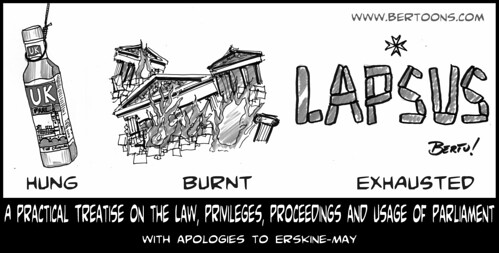
Well Hung
It’s pretty clear that if the UK electorate did not vote strongly enough to force through the necessary electoral reform, it will be a hundred times more difficult to get that kind of message through to this masochistic electorate of ours. Our PLPN farce that has once again descended to incredible levels of mediocrity this week will hang on for another mandate. Whether we have the not so smooth operators of PN or the bungling drama queens of Labour in government after the next election, J’accuse is still of the same opinion as it has been in recent times – the greatest losers are the voters, hung parliament or not.
Malta’s number one political blog and mediawatch still has the same address: www.akkuza.com – blogging so you don’t have to.
This article and accompanying Bertoon appeared in today’s Malta Independent on Sunday.
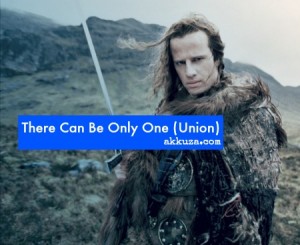 Gordon Brown’s last minute appeal for Scottish voters to vote “No” in the referendum was the highlight of the campaign for me. It was not just that he seemed ever so passionate about the affair but also the reasoning that he gave as to why it was really “Better Together” that struck home home hard. Underlying his message was the assertion that voting against independence did not make anyone any less Scottish and that the identity and spirit could not only be hijacked by the Yes camp. Brown stressed that Scotland has always had a fundamental role in the building of the Union and that it can continue to proudly exist as a nation within such a Union. As one of the four nations.
Gordon Brown’s last minute appeal for Scottish voters to vote “No” in the referendum was the highlight of the campaign for me. It was not just that he seemed ever so passionate about the affair but also the reasoning that he gave as to why it was really “Better Together” that struck home home hard. Underlying his message was the assertion that voting against independence did not make anyone any less Scottish and that the identity and spirit could not only be hijacked by the Yes camp. Brown stressed that Scotland has always had a fundamental role in the building of the Union and that it can continue to proudly exist as a nation within such a Union. As one of the four nations.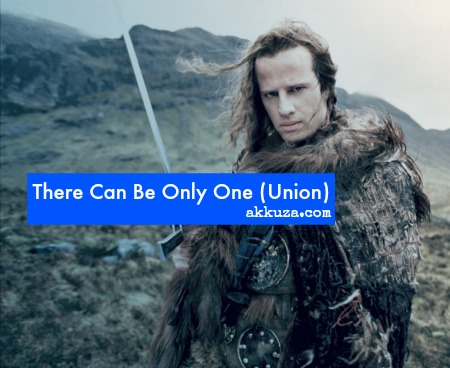

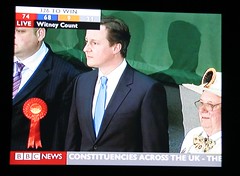

![Reblog this post [with Zemanta]](http://img.zemanta.com/reblog_e.png?x-id=de28fb97-017a-4cc5-aafd-291264fb1793)
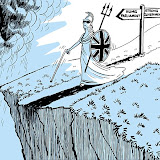

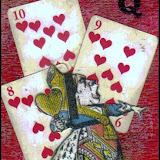
![Reblog this post [with Zemanta]](http://img.zemanta.com/reblog_e.png?x-id=c70729ca-577e-4bad-9ef1-1cc9a2e1f978)